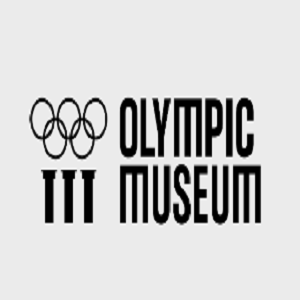Olympic Museum
The Olympic Games originated in Ancient Greece and were held in the city of Olympia. They began as a one-day contest, and included running, long jump, shot put, javelin, boxing, pankration, and equestrian events. Over time, the Games added more sports and more days, only coming to an end in 393 C.E. once Greece came under Roman rule. In 1894, Pierre de Coubertin created the International Olympic Committee (IOC) and revived the modern Olympic Games in Athens. He believed that there was value in amateur sporting competition as well as the Ancient Greek tradition of peace during the Games. Coubertin saw athletic competition as a way of promoting cross-cultural understanding, thereby lessening the dangers of war. The 1896 Games had the largest international participation of any sporting event to that date and the Olympics have recurred every four years since that year, only being cancelled in 1916, 1940, and 1944 for war. The modern Olympic Games have become a symbol of international cooperation and sportsmanship. The IOC states that the Olympics are a forum “where the world comes to compete, feel inspired, and be together” and in addition, the host city has an opportunity to showcase themselves to the world, promoting patriotism and globalism.
The IOC operates the Olympic Museum in Lausanne, Switzerland. The Museum is an international center for studying Olympic history and promoting Olympic values. Their educational resources are aimed at children 4 years and older and include resources for teaching Olympic values, history, and other related skills including sports photography.
The main educational website has 4 links, to Olympic Values and Symbols Resources, Olympic Summer Games Resources, Sports Photography Resources, and Olympic Creativity Resources. Olympic Values and Symbols Resources primarily has resources for teaching good sportsmanship, but also has a fact sheet which includes historic milestones for the Olympic Movement, and a series of videos featuring Olympic history including artifacts, women in sports, and major developments. Olympic Summer Games Resources has fact sheets on the history of both the modern and Ancient Games, as well as a reference document for the history of sports at the Games. Sports Photography Resources has primarily resources for teaching sports photography but also has a video series on the history of sports photography. Finally, Olympic Values and Symbols has fact sheets on the history of the Olympic flame and relay as well as the history of the Olympic Games official posters.
Educators can use this site to teach students about the history of the Olympic Games and globalism. The site may also be useful for those wishing to discuss global conflicts, particularly those which have led to national boycotts or the cancellation or postponement of the Games, such as World Wars I and II, the Cold War, and COVID-19. The Olympics have also served as an international stage for several major movements including the American Civil Rights Movement, student protests, and the modern refugee crisis. Finally, the Olympics can be a good jumping-off point for discussing environmentalism and the impact of the Games, the architecture of Games facilities, the global economy, and modern developments in sport and medicine.
The website is fairly easy to navigate. The menu is available on every page at the left and users can always click back to the main Online Educational Resources page. All links redirect you to the new page rather than opening a new tab. However, videos are embedded and can be played without leaving the page.
